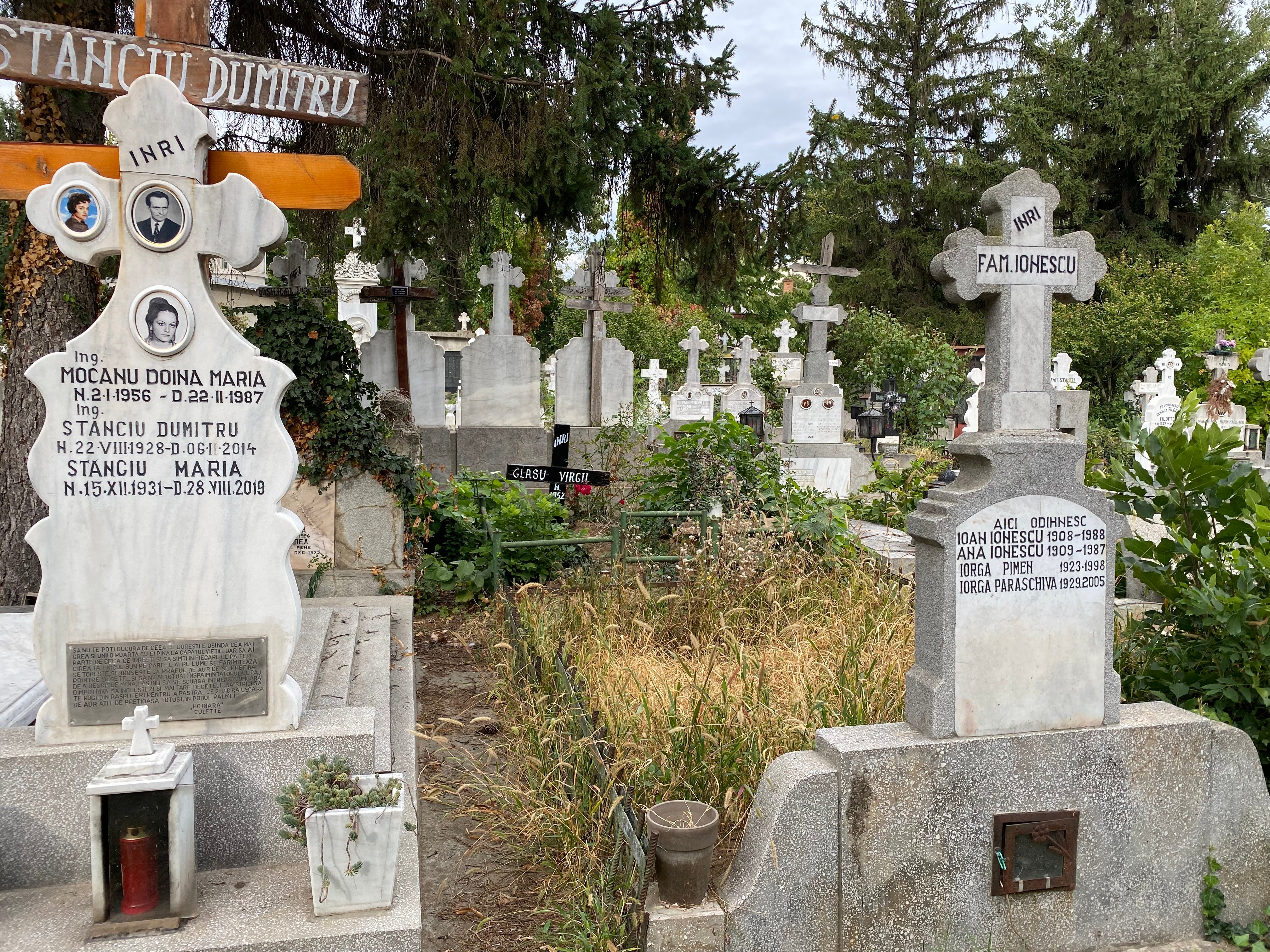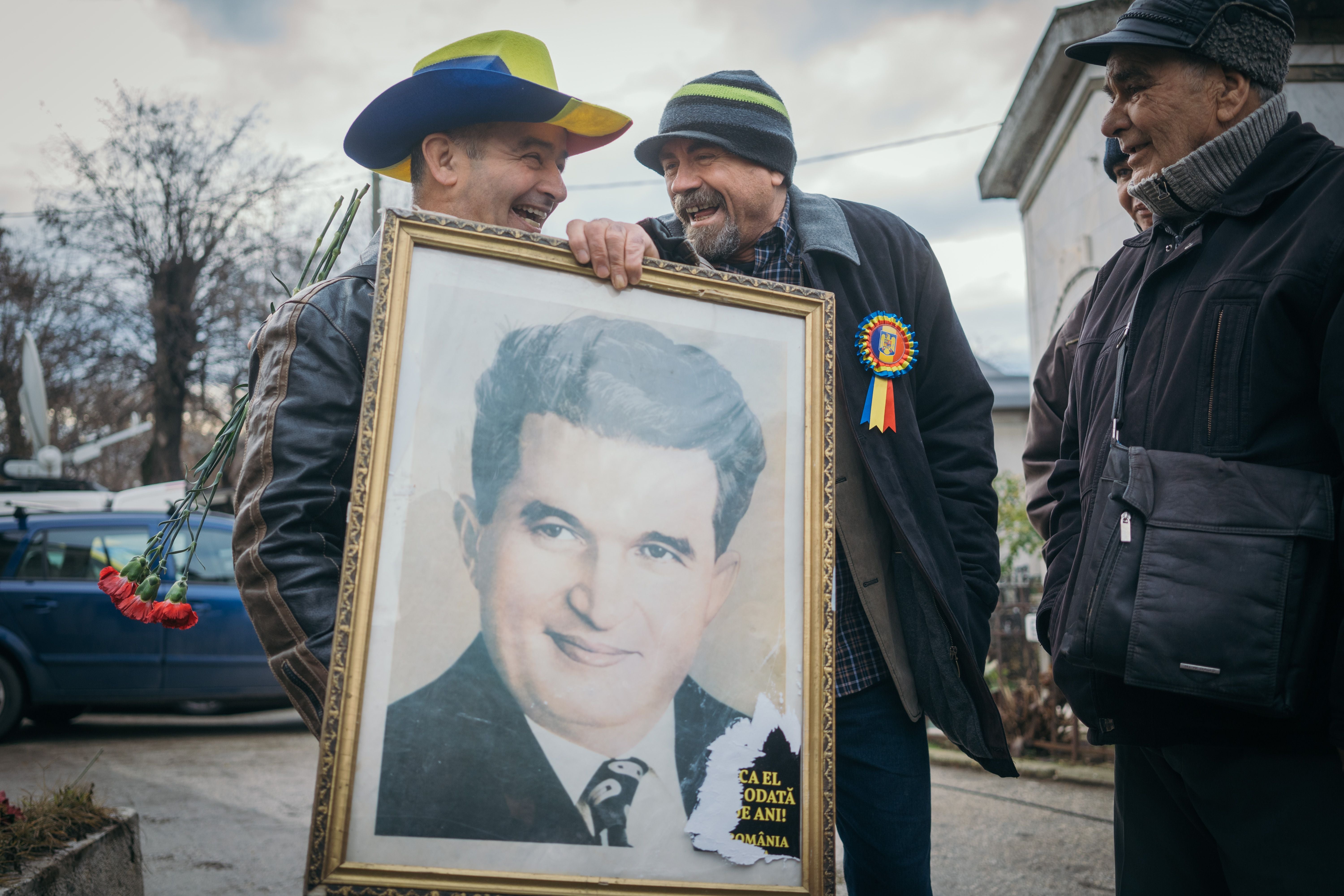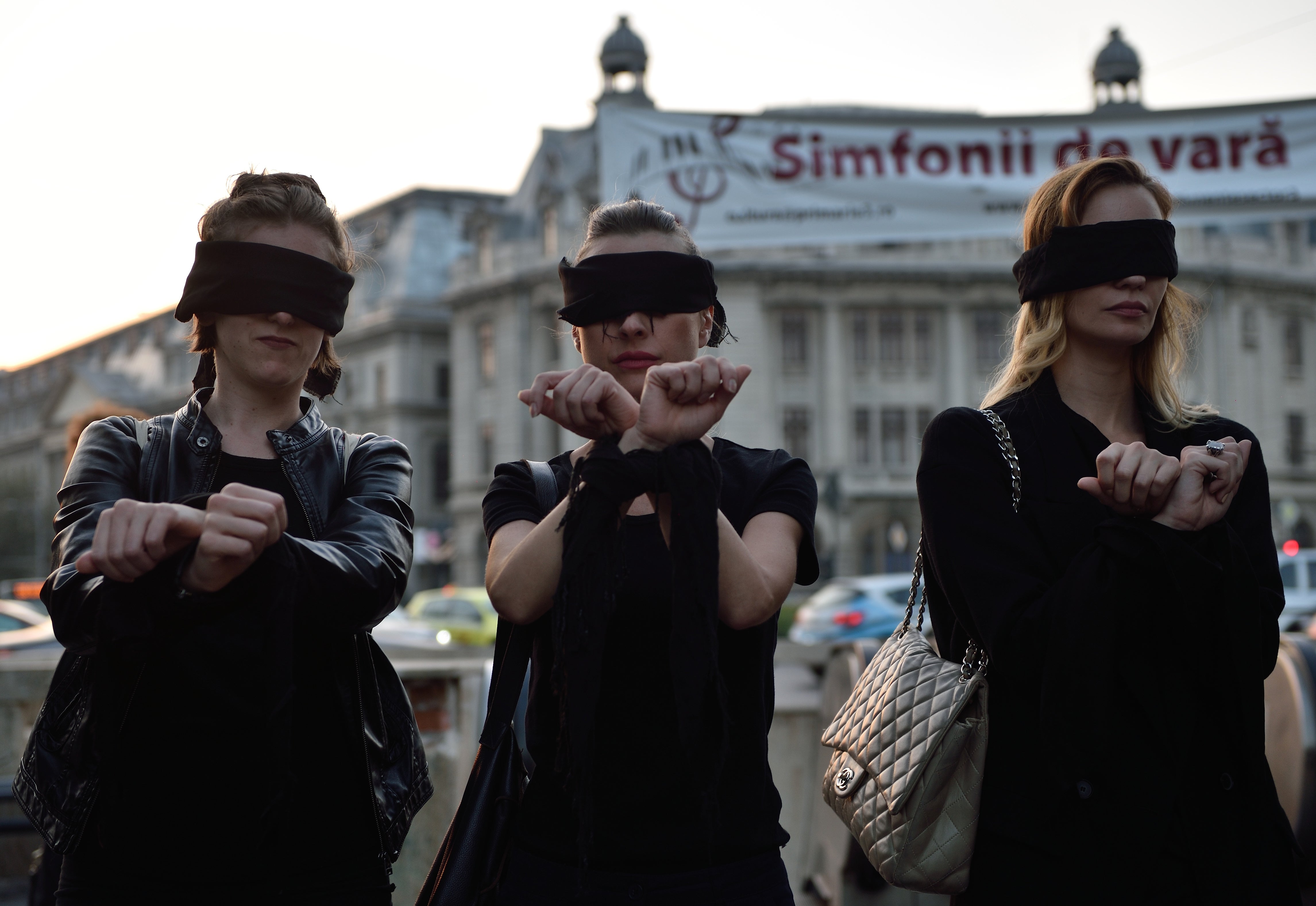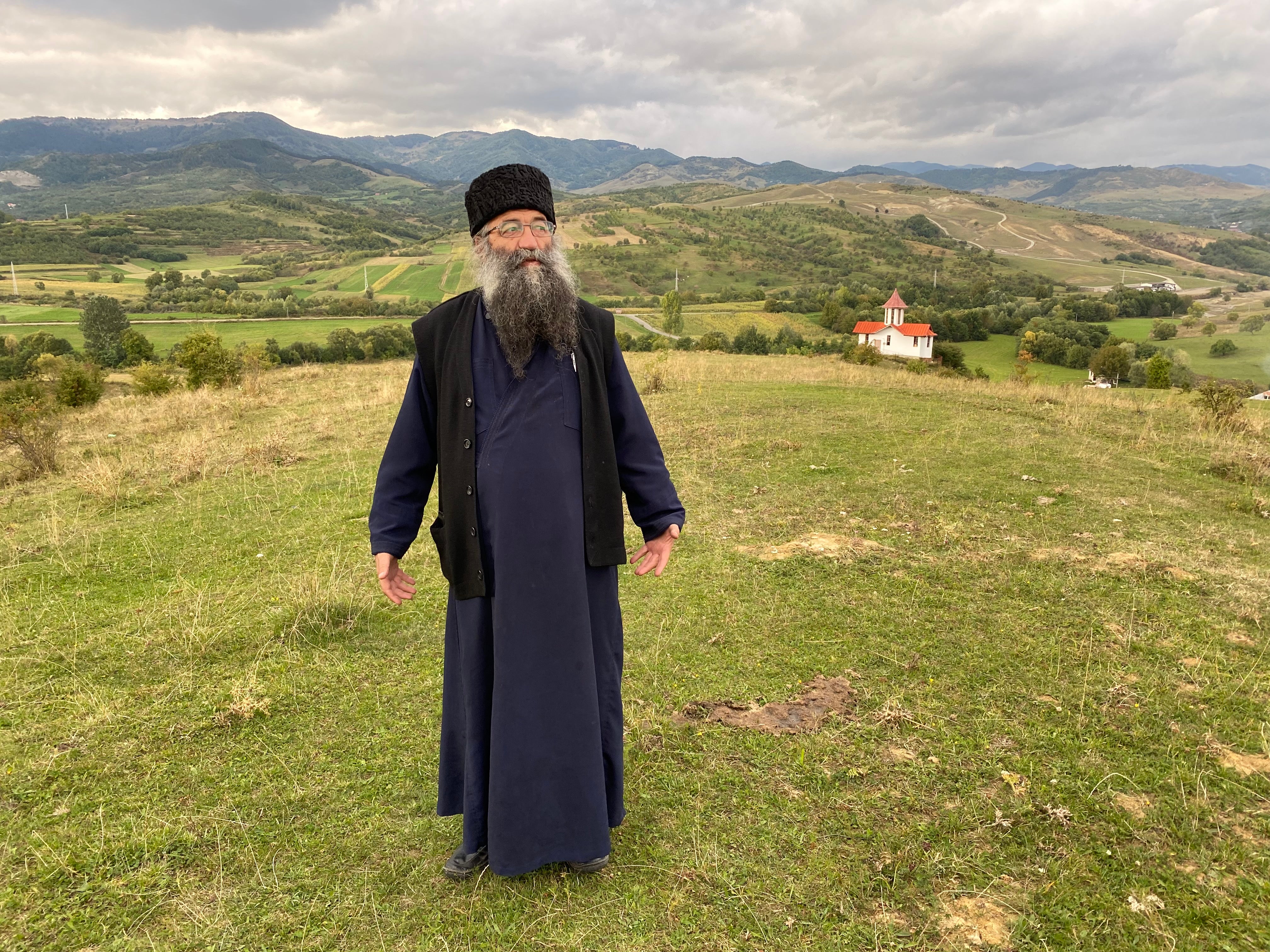‘Next time you’ll be more careful’: How anti-abortion activists are targeting women in Romania
Romania’s abortion opponents have become more assertive in recent years and are adding to the increasingly formidable wall for women seeking to obtain the service, writes Borzou Daragahi in Bucharest
Your support helps us to tell the story
From reproductive rights to climate change to Big Tech, The Independent is on the ground when the story is developing. Whether it's investigating the financials of Elon Musk's pro-Trump PAC or producing our latest documentary, 'The A Word', which shines a light on the American women fighting for reproductive rights, we know how important it is to parse out the facts from the messaging.
At such a critical moment in US history, we need reporters on the ground. Your donation allows us to keep sending journalists to speak to both sides of the story.
The Independent is trusted by Americans across the entire political spectrum. And unlike many other quality news outlets, we choose not to lock Americans out of our reporting and analysis with paywalls. We believe quality journalism should be available to everyone, paid for by those who can afford it.
Your support makes all the difference.After being turned away from four private clinics over the course of a long, traumatic week, the frazzled 21-year-old college student managed to get a government hospital to agree to terminate her unwanted pregnancy. But it was a Sunday and a minor Christian holiday in Romania, the doctor explained, and the pious nurses on the ward were “uncomfortable” performing the procedure. Come back the following day, he said.
But the next day there were more obstacles. Kai, who asked that her last name not be published, was kept waiting and not allowed to eat or drink for hours, and when she was finally given anaesthesia, held for another 90 minutes until the sedative all but wore off.
She screamed in pain as the doctor performed the procedure. And when it was over, a nurse delivered the coup de grace. “Next time,” she hissed, “you’ll be more careful.”
Kai was stunned, but through her exhaustion and tears, she managed to reply to the nurse: “I was raped.”
More than 30 years after Romania legalised abortion upon toppling the dictator Nicolae Ceausescu, who notoriously outlawed the practice in a failed gambit to boost the country’s population, social and political pressures are once again making it more and more difficult for women to obtain the procedure even though it remains legal up to 14 weeks.
Phony clinics and pregnancy crisis centres have been set-up to dissuade women from terminating unwanted pregnancies, sometimes using subterfuge. Conservative politicians and religious groups emboldened by the rise of right-wing populism across eastern Europe and sometimes funded by backers in the United States and Russia are becoming more assertive. More doctors are saying they are uncomfortable giving abortions and increasingly turning women away from their clinics.
One Orthodox priest recently boasted on television that he convinced scores of doctors to stop performing abortions. And a hospital in the northeastern city of Piatra Neamt forces all women seeking abortion services to first obtain counselling from a priest.
Anecdotal evidence suggests that doctors and medical staff are increasingly citing reasons of religion or conscience to deny women abortions, which is allowed under Romanian law provided the care provider refers the patient to another physician.
The result has been a steady decline in reported pregnancy terminations. According to Romania’s health ministry, the number of abortions performed in the country dropped from 103,386 in 2011 to 31,889 in 2020.
“At state hospitals, the doctors are asking for medical reasons to perform the abortion and if you don’t have one, they might refuse you,” says Vasile Barbu, president of the National Association of the Protection of Patients, an advocacy group.
Through conversations with doctors and patients, health advocates have detected a trend of women, especially from impoverished or rural areas, being forced to delay terminations until later and later stages of their pregnancy because they cannot afford the fees of up to €500 (£430) to perform the procedure at a private clinic.
“Of course the government doesn’t pass any laws to ban abortion, but they don’t have to do that,” says Andrada Cilibiu, of the organisation Centrul Filia, a women’s rights advocacy group. “Any doctor can deny a procedure if it’s against his or her moral beliefs.”

The struggle for abortion access is playing out across European countries, including in Poland, where the procedure was severely restricted in 2020 by the right-wing government. But the issue is especially poignant in Romania. It was in this eastern European nation that Ceausescu, a megomaniacal Communist Party apparatchik who rose to become the country’s long-time ruler, issued Decree 770 in 1966 outlawing contraception and all abortions except in the most dire of circumstances.
The aim of the policy was to increase Romania’s population, but it ended up yielding entire generations of orphans as well as a cottage industry of back-alley or at-home abortions that led to the deaths of at least 10,000 women and the disfigurement and trauma of many more over a period of 23 years. State security operatives would hover at hospitals, forcing women bleeding from botched abortions to give up the names of underground clinics they had gone to before they could be treated. Romanian cemeteries became dotted with the graves of young women who died of botched procedures.
“Contraception was banned. Abortion was banned,” says Daniela Draghici, a Romanian woman’s health advocate who herself had two underground abortions during the 1970s. “But when you have an unwanted pregnancy you just have to find the right person to do it.”
The mood of desperation was depicted in the award-winning 2007 film “4 Months, 3 Weeks and 2 Days”, which recounts the efforts of a Romanian college student to help her pregnant roommate get an illegal abortion in the 1980s.

Ceaucescu was killed along with his wife during a late 1989 uprising, with the removal of Decree 770 among the very first acts of the post-communist government. In 1990, nearly a million abortions were performed in Romania. But the number has steadily declined.
Kai’s ordeal, recounted over a series of interviews and corroborated by her attorney, women’s health advocates and medical documents, is one of many that shows how difficult it has become for women to obtain the procedure in recent years, even in the case of sexual assault. The student of veterinary medicine says she was raped by a young man after she became intoxicated at a gathering with friends in May. “I blacked out,” she says. “I woke up, and four guys were cheering. I was naked and my vagina was in pain.”
Kai, who decided to study veterinary medicine in part because of her love of animals, is a skateboarding aficionado. She grew up mostly abroad, and struggles to adjust to life in Romania. At first she tried to block out the memory of the assault, and move on. She didn’t even remember being penetrated. But after a positive pregnancy test result a week later, she went and found her assailant – a student at another school near hers residing in the same Bucharest dormitory complex – and confronted him.
She demanded he pay for the termination. He rudely replied that he would pay for it, so long as she performed a sex act on him. Instead, she slapped him in the face and headed to the police to report him for rape.
But there she faced more hurdles of the type that pervade institutions with outdated understandings of sexual assault. All the police officers were men. Why did she wait a week? Was it really rape? The police conducted hours of interrogations but ultimately have not moved forward.
“You can pressure the prosecutor or pressure the police, but nothing comes of it,” says Cristinel Buzatu, a Bucharest human rights lawyer whom Kai has retained. “They’re just hoping that she and the perpetrator will find some resolution.”

Next came the search to obtain an abortion. Kai looked on Google, and came up with the name and a number of what she thought was a clinic to get an appointment. But when she called, the woman on the other end told her instead that abortions were very risky, and that she could die if she had one. Instead of an appointment to terminate her pregnancy, the woman offered to send her videos and links recounting the horrors of abortion. It’s part of a growing number of pregnancy counselling services set up by Christian organisations to discourage abortions. Cilibiu, the women’s rights advocate, says the groups try to shame the callers, warning them that they are sinners and will be haunted by nightmares of their “unborn child” should they obtain an abortion.
“There are very many physical and emotional complications after an abortion,” a woman on the phone at one such organisation said to young woman who asked about obtaining pregnancy termination services. “Many women are going through a traumatic experience after an abortion. After you take an abortion pill you can have a temporary haemorrage or you can bleed to death in the worst-case scenario.”
Romania’s abortion opponents have become increasingly assertive in recent years, and though most say they don’t want a return to the dark days of Ceaucescu, they are adding to the increasingly formidable wall for women seeking to obtain the service.
They attend conferences with counterparts across Europe and receive funding from international anti-abortion groups pushing conservative agendas. According to a report issued in June by the European Parliamentary Forum for Sexual and Reproductive Rights, US and Russian organisations account for nearly a quarter of a billion dollars in funding for anti-abortion and anti-LGBT+ causes in Europe over the course of nine years.

Among the most outspoken abortion opponents in Romania is Father Nicolae Tanase, a Romanian Orthodox priest and founder of Pro Vita Association for the Born and Unborn. He serves parishioners in a rural, hilly agricultural region about two hours away from Bucharest. He first came to prominence in the 1990s, when he roamed hospital corridors and chastised women seeking abortions until he was kicked out, or sometimes, as he put it, dragged out by nurses pulling on his bushy beard. He and his supporters have built a shrine on a hillside dedicated to what he describes as millions of “unborn children” aborted by their mothers.
Tanase opposes abortion even in cases of rape, saying it “adds fuel to the fire” of sin.
“It’s cheap and easy to get an abortion in Romania,” he says. “Abortion should happen only after women are informed. She should stay prone on a bed and see the image [of the fetus] and the heartbeat, and be shown a doll of what she has in her belly.”
I felt everything. It’s like the anesthetic was non-existent. It was one of the most painful experiences I’ve had my whole life
Fear of the controversy surrounding abortions has prompted many doctors to turn women away. After her encounter with the fake pregnancy centre, Kai visited three more clinics, each of which rejected her. One said they didn’t want to deal with a first-time abortion. Another seemed nervous about the rape allegation.
“They’re there to make money,” says Buzatu, Kai’s lawyer. “They don’t want anything that will get a prosecutor to come and start looking through their files. Once it gets a little complicated, they don’t want to deal with it.”
But doctors themselves are also just deciding they don’t want to give abortions. Draghici, the women’s rights advocate, says ob-gyn physicians give abortions early in their careers and then give the practice up once they’ve made their fortunes.
“It was a lucrative business,” admits one doctor who stopped performing abortions several years ago. “I was doing tens of abortions a day. But I realised it was not the right thing for me to do. It’s not a religious issue – more of an ethics issue.”
Doctors don’t want anything that will get a prosecutor to come and start looking through their files. Once it gets a little complicated, they don’t want to deal with it
Desperate and alone, Kai was forced to go to the public hospital to obtain an abortion. The nurses needled her and gave her dirty looks. Why are you having an abortion, one questioned her.
The doctor disappeared for a full 24 hours, letting her languish alone before finally performing the procedure, which she alleges was botched. Law enforcement had failed to protect her. A health system supposed to provide her with a safe, discreet way to end her pregnancy had failed.
“I felt everything,” she recalls. “It’s like the anesthetic was non-existent. It was one of the most painful experiences I’ve had my whole life. I am screaming and crying. I told him I am about to vomit. I am laying on the bed and I am screaming and crying. He doesn’t say anything to me. He doesn’t say a single thing to me. He just gets up and leaves.”
Adina Florea contributed to this report



